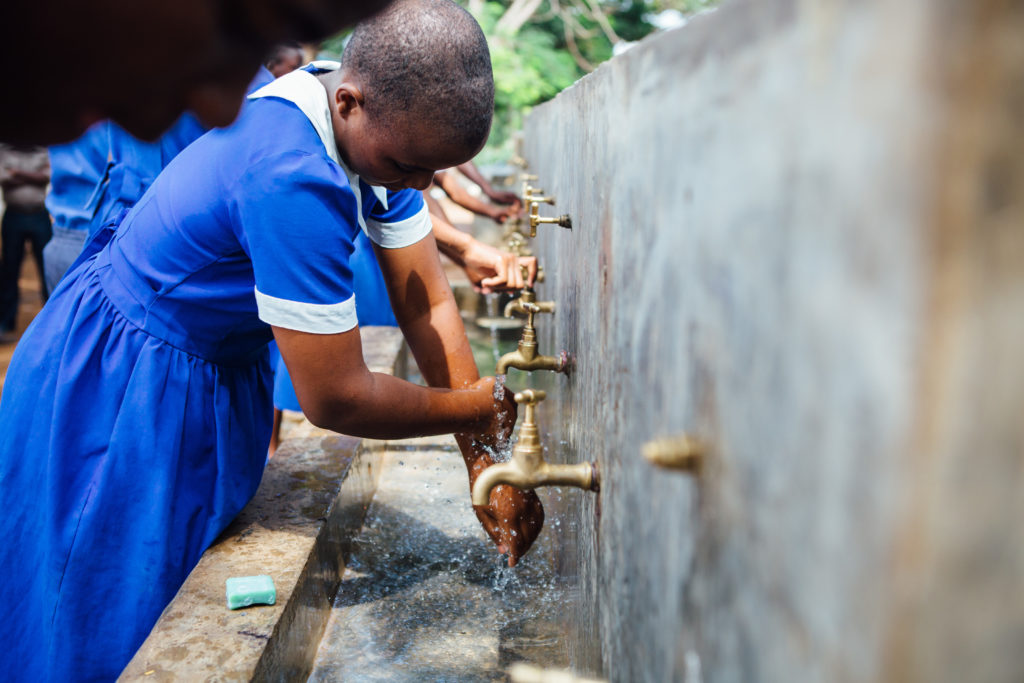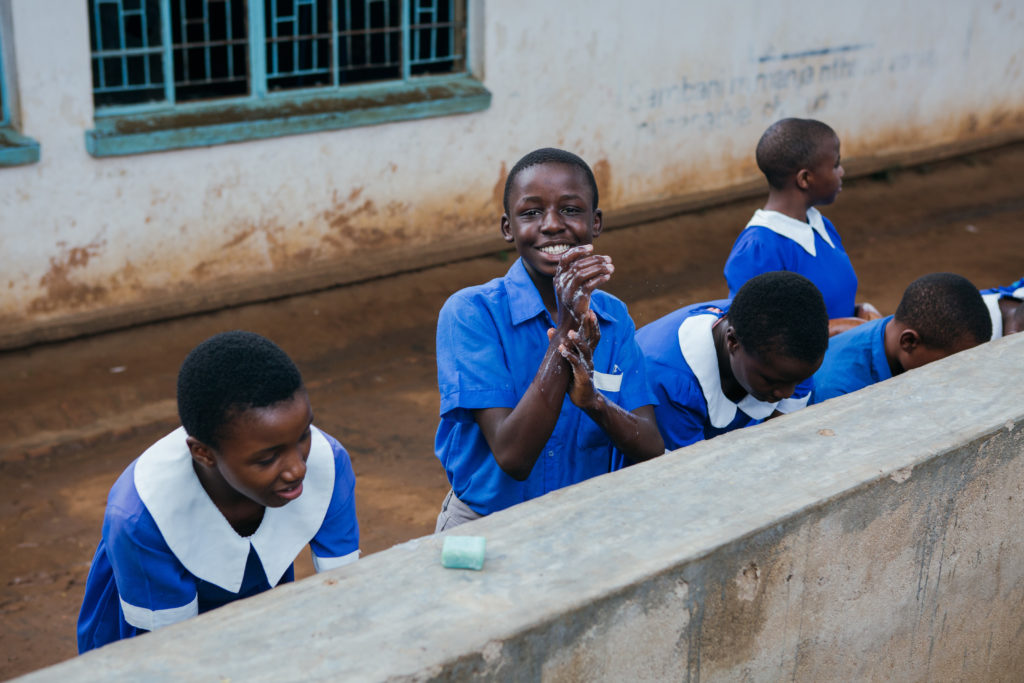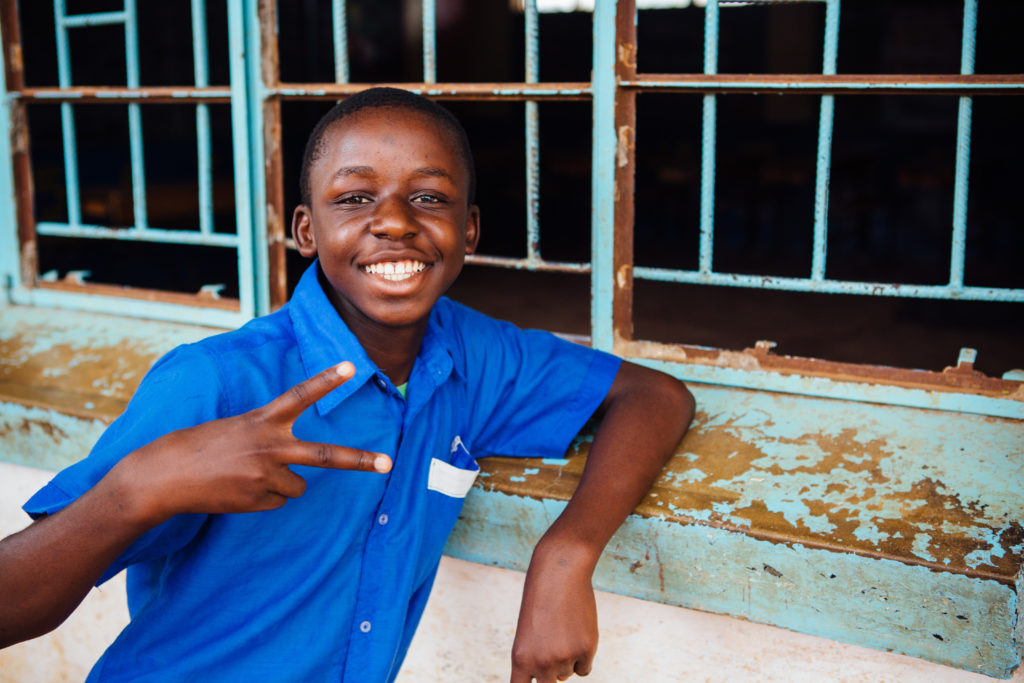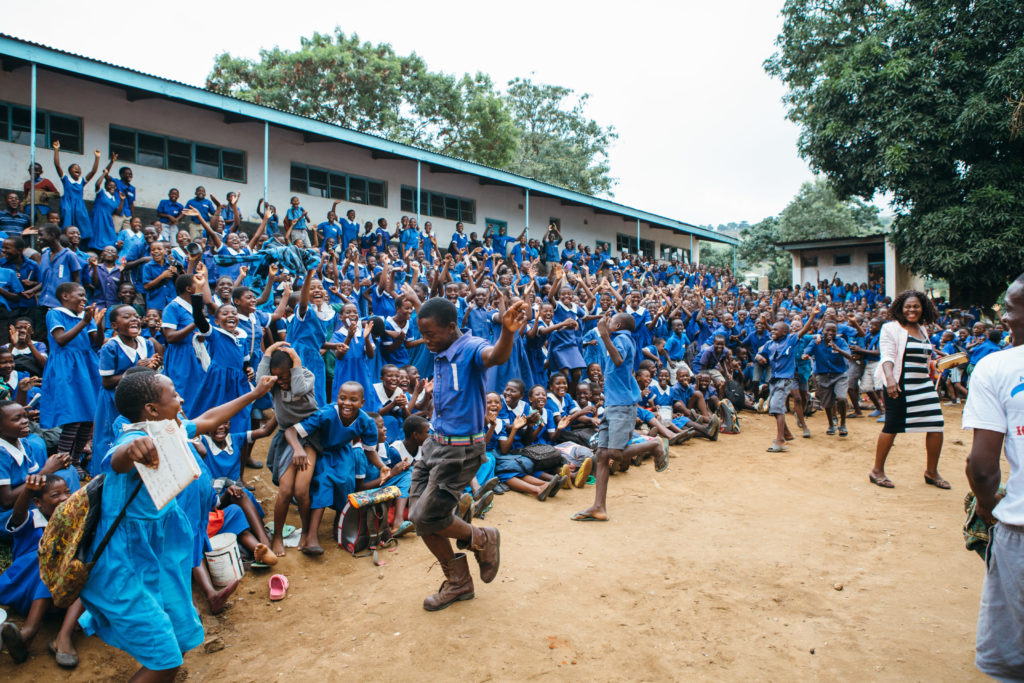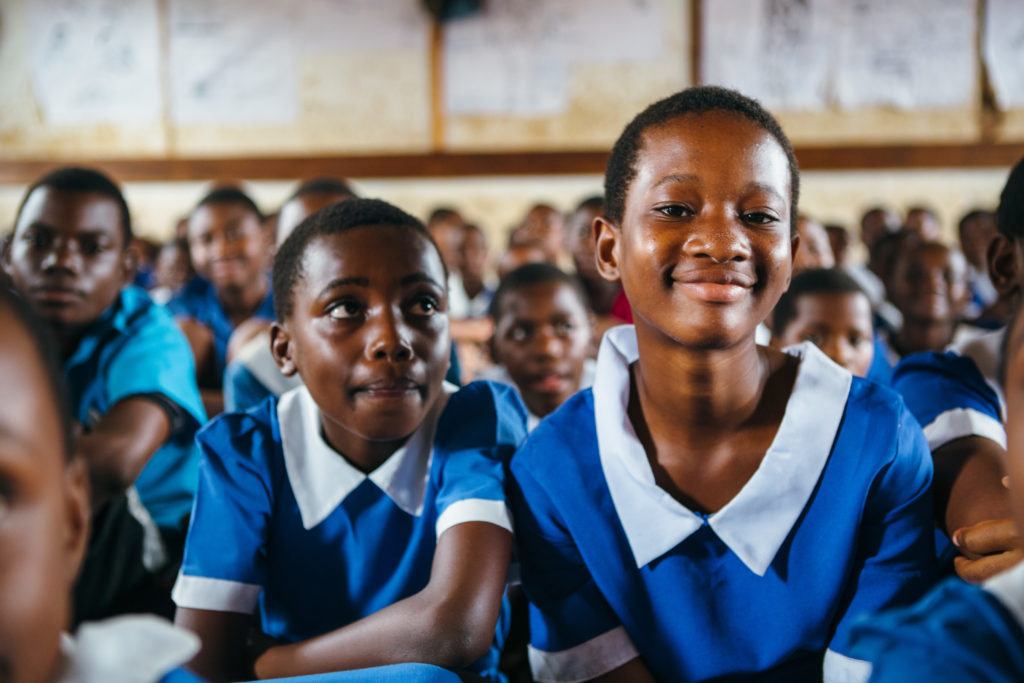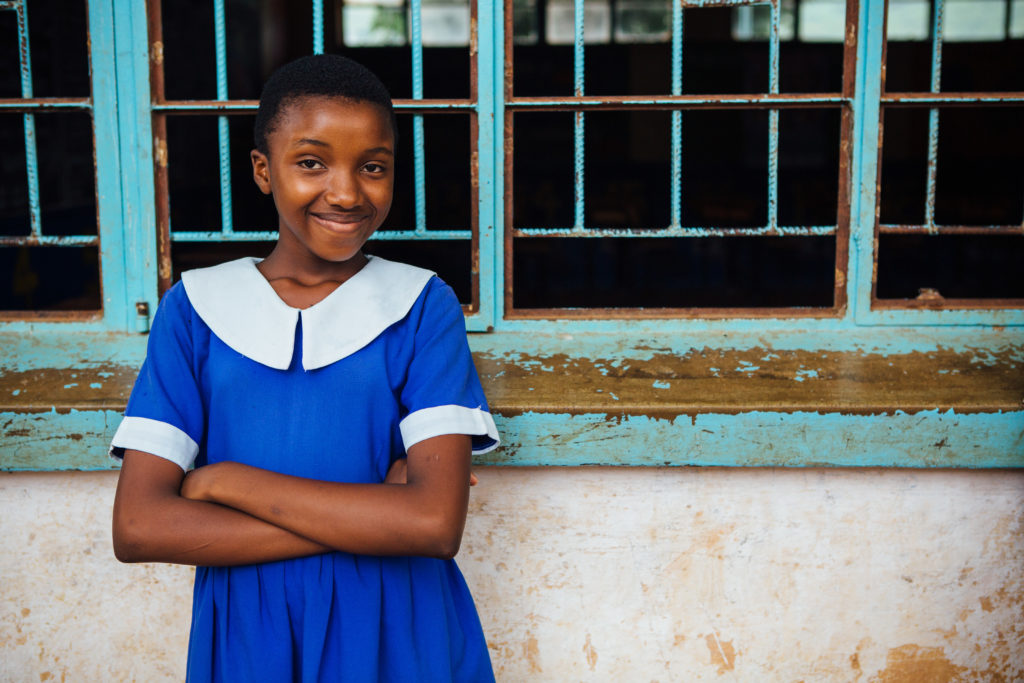"Okay, let me give you an example of why water and sanitation in schools are important." David’s excitement is palpable.
He’s a member of the Chilomoni Primary School’s Sanitation Club in Blantyre, Malawi, and he’s been on the forefront of heralding important change in water and sanitation for the school’s 1,600 students.
"Previously we would all drink from a bucket in the classroom," he says. "Personally, I felt like it was easily contaminated by a lot of students dipping their cups in it."
The previous sanitation facilities also left a lot to be desired.
"We had one toilet block, and it would be congested," David says. "To avoid this, some of my friends would go during class and miss important topics. We also used to go in the bushes around the school."
David’s school built new water and sanitation facilities in 2014, and the changes and their effects on the school’s students have been vast.
New drinking stations mean no more dipping cups into shared buckets of water in classrooms. Improved toilet blocks mean no more missing class or going in the bush. Handwashing stations mean diseases like cholera stopped spreading. Menstrual hygiene resources mean girls could stay in school when they’re on their periods.
The Sanitation Club David is a part of is charged with promoting behavior change around utilizing the new facilities and resources, and one of the methods they utilize are games.
"We never knew that games could be used in conducting hygiene promotions," David says. "It’s very exciting! Our toilets are now always clean because students know how to properly use them."
David says his favorite game is World Toilet Cup. A goal post is set up with a hole shaped like a toilet’s drop-hole, and students try to kick the ball through this hole. If they miss, the other students shout out that the student now has to clean the toilet – a way of reminding each other to make sure the toilet blocks stay clean.
Beatrice Kamphata is a teacher at the Chilomoni school and helps lead the Sanitation Club. She says the club was formed in 2004 when Water For People began training the school’s teachers on hygiene promotion, and its influence has grown since the new facilities were constructed in 2014. Beatrice breaks into a smile, noting that enrollment has grown by nearly 300 students since 2014, which she attributes to the new facilities and resources.
"We have seen girls’ improved confidence and class performance after having new girls’ change-rooms at our school," Beatrice says.
There are also pads and incinerators available for girls while they’re on their periods, and Beatrice says these menstrual hygiene resources have been the catalyst for keeping girls in school and allowing them to move onto secondary school.
"Blantyre’s low-income areas, where most of our schools are located, have had a series of cholera outbreaks some years back," Margory says. "We have worked with Water For People in ensuring that students have skills to prevent cholera and diarrheal diseases."
Margory Matthews Banda works with Malawi’s Ministry of Education as the School Health and Nutrition Coordinator in Blantyre. She oversees 61 schools, making sure each one has adequate water, sanitation, and hygiene facilities just like the Chilomoni Primary School. One of her chief goals behind this initiative is to prevent diseases from spreading.
She said the school Sanitation Clubs like the one at the Chilomoni Primary School have been key in this endeavor by promoting handwashing in schools. "This has greatly contributed in the prevention of cholera!" Margory says.
As a coordinator at the district level, Margory has a broad outlook on the importance of girls staying in school. "To stay home because as a girl-child, you have no place to change your pads, is the cruelest form of discrimination against women," she says. "In the future, this girl will be a woman and because of this mentality she received in childhood, she will have low self-esteem to aspire to greater positions in society. Let’s build confidence now to have more women leaders in the future!"
The outlook for schools in Blantyre is bright, as one by one they construct improved water and sanitation facilities – empowering more students like David. The next challenge, according to Margory? Keeping up with the pace of increased enrollment to make sure there are still enough toilets for the ever-increasing number of students who can now stay in school.
We think that’s a good problem to have.
